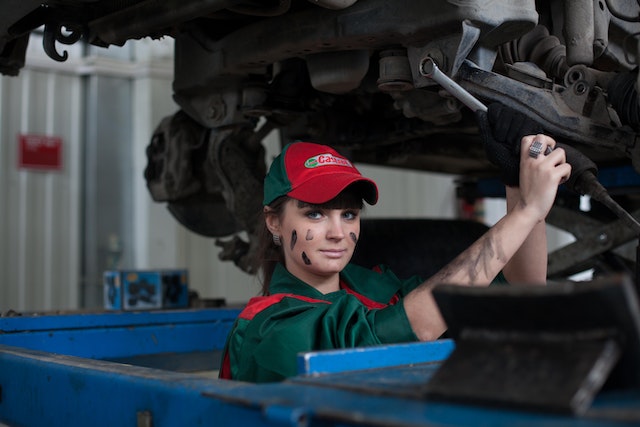When shopping for used cars, there are a few important points to keep in mind to ensure you get a good deal. With so much information out there, it can be hard to know what to look out for. To make sure you get the best value for your money, here are 5 things to avoid when buying a used car.
1) Check the vehicle history report
When you're shopping for used cars, one of the most important things to do is check the vehicle history report. This report can provide valuable information about the car’s past, including any accidents, ownership changes, or other issues that may affect its value or condition. The report can also tell you if there are any active recalls on the car, which could be important in terms of safety and reliability. By taking the time to check the vehicle history report, you can be sure that you're making a wise decision when buying a used car.
2) Don't buy a car with an outstanding recall
When shopping for a used car, it's important to avoid any vehicles with an outstanding recall. Every car model has safety recalls issued from time to time and if the recall hasn't been addressed, it can put you at risk of injury or worse in the event of an accident.
The National Highway Traffic Safety Administration (NHTSA) keeps track of all vehicle recalls, and a simple online search should tell you if the car you're considering has any open recalls. If so, it's best to avoid that particular car until the recall is taken care of. Don't put your life at risk by buying a car with an unresolved recall issue.
3) Have a mechanic inspect the car
It is always wise to have a mechanic inspect a used car before you buy it. This can help identify potential problems with the car, such as worn brakes or suspension components, or any other major issues that could cause problems down the road. A qualified technician can spot potential problems and provide a detailed report that can help you make an informed decision on the car.
If you don’t have a personal mechanic to call on, most dealerships offer pre-purchase inspections for a fee. Make sure you know exactly what the inspection covers and whether it includes a test drive and examination of the engine and transmission.
Keep in mind that even if the car passes inspection, it’s not necessarily a guarantee that there won’t be any future issues.
4) Don't buy a car that's been in a major accident
When buying a used car, it’s important to know if the car has been in any serious accidents. Accidents can have a significant impact on the performance and safety of a vehicle, so it’s important to know the history of a car before making a purchase.
If a car has been in a major accident, there may be frame damage. Frame damage can cause problems with the structure of the car and result in issues with the car’s alignment, suspension, brakes, and other components. It’s also important to make sure that any structural damage was properly repaired before buying a car that has been in a major accident.
When looking at a used car, ask the owner for detailed information about any major accidents the car has been in. Have a mechanic inspect the car for any potential frame damage, and make sure that any damage that is present was properly repaired.
It’s always better to be safe than sorry when it comes to buying a used car. Don’t take any chances with a car that has been in a major accident. Ask questions, have a professional inspect it, and make sure you feel confident about the quality and safety of the car before signing on the dotted line.
5) Don't overpay for a used car
It's easy to get carried away when buying a used car, especially if you're looking for a reliable and reasonably priced vehicle. However, it's important to avoid overpaying for the car. If you're looking to get a good deal on a used car, make sure you research the vehicle's average market price.
It's also important to remember that prices vary from dealership to dealership. Even if one dealership is offering a seemingly great deal, it's still worth shopping around and seeing what other dealerships have to offer. There are many online resources available to help you compare pricing, so take advantage of them.
When looking at used cars, don't be swayed by emotion either. Just because a car looks nice doesn't mean it's worth the asking price. Make sure you consider all the factors involved when pricing a car, such as condition, mileage, and features. Doing your research and shopping around can help ensure you don't overpay for a used car.

















